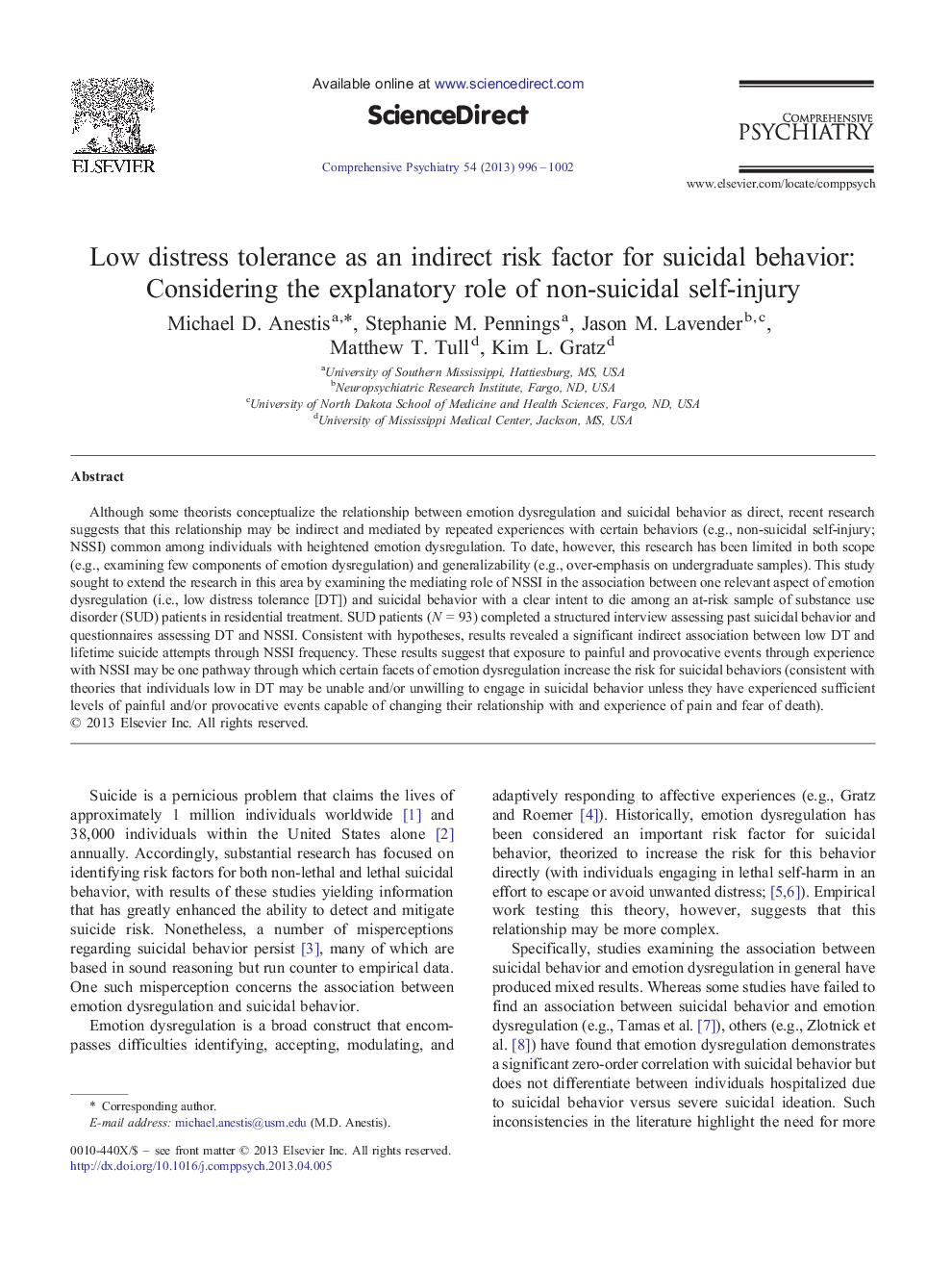| Article ID | Journal | Published Year | Pages | File Type |
|---|---|---|---|---|
| 10297598 | Comprehensive Psychiatry | 2013 | 7 Pages |
Abstract
Although some theorists conceptualize the relationship between emotion dysregulation and suicidal behavior as direct, recent research suggests that this relationship may be indirect and mediated by repeated experiences with certain behaviors (e.g., non-suicidal self-injury; NSSI) common among individuals with heightened emotion dysregulation. To date, however, this research has been limited in both scope (e.g., examining few components of emotion dysregulation) and generalizability (e.g., over-emphasis on undergraduate samples). This study sought to extend the research in this area by examining the mediating role of NSSI in the association between one relevant aspect of emotion dysregulation (i.e., low distress tolerance [DT]) and suicidal behavior with a clear intent to die among an at-risk sample of substance use disorder (SUD) patients in residential treatment. SUD patients (NÂ =Â 93) completed a structured interview assessing past suicidal behavior and questionnaires assessing DT and NSSI. Consistent with hypotheses, results revealed a significant indirect association between low DT and lifetime suicide attempts through NSSI frequency. These results suggest that exposure to painful and provocative events through experience with NSSI may be one pathway through which certain facets of emotion dysregulation increase the risk for suicidal behaviors (consistent with theories that individuals low in DT may be unable and/or unwilling to engage in suicidal behavior unless they have experienced sufficient levels of painful and/or provocative events capable of changing their relationship with and experience of pain and fear of death).
Related Topics
Life Sciences
Neuroscience
Biological Psychiatry
Authors
Michael D. Anestis, Stephanie M. Pennings, Jason M. Lavender, Matthew T. Tull, Kim L. Gratz,
